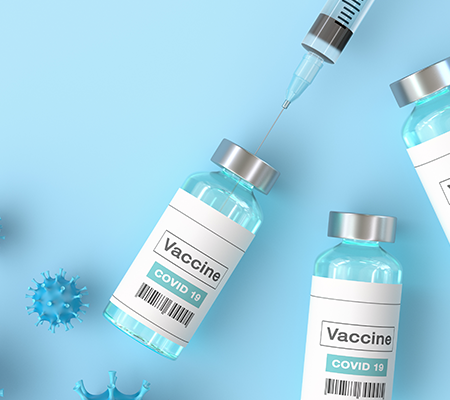It’s true that natural infection from viruses can generate some level of immunity.

But should you rely on that alone and skip your vaccines if you’ve already been infected? The answer is a clear ‘no’, especially when it comes to annual vaccines that protect against influenza (flu) and COVID-19.
What is natural immunity?
Natural immunity is your body’s ability to recognize and fight off infections after being exposed to a virus. It involves producing antibodies and memory cells that help defend against future infections.
While this immune response can offer some protection, it’s often unpredictable and short-lived, especially for viruses that mutate frequently, like influenza and COVID-19.
“Natural immunity comes at a high cost because you first have to get sick with the virus to get protected,” said Dr. Thomas Boyce, Marshfield Clinic infectious disease physician. “You expose yourself to a potentially severe illness and complications like long COVID. In addition, for flu and COVID-19 we know that natural immunity will wear off within 6-12 months.”
Limitations of natural immunity
Natural immunity is highly variable, meaning its strength or longevity is impacted by several factors.
- Immune responses vary. People respond differently to infections. Some may develop strong immunity, while others may not, depending on age, genetics, and overall health.
- Natural antibodies decline over time. Antibodies from natural infection from seasonal respiratory viruses often decline within months, leaving you vulnerable to reinfection.
- In some cases, natural infection can be severe. Gaining natural immunity means getting sick, which might lead to severe complications, long-term effects, hospitalization or even death.
- Natural immunity does not guarantee protection against future infections or virus mutations. Natural immunity is often specific to the strain you were infected with. It may not defend well against mutated versions of the virus.
Vaccines offer better, more reliable protection
Vaccines provide stronger and more durable immunity against many viruses compared with natural infection.
- Vaccines help prevent illness, without the risk. Vaccines train your immune system using inactivated or weakened virus components. This means you build protection without getting sick.
- They can be developed to target specific strains or variants. Annual vaccines, like those for flu and COVID-19, are updated to target the most current strains. Natural antibodies from past infections are likely to be less effective against different variants of the same virus.
- Vaccines offer longer-lasting protection. Vaccines are engineered to produce a more consistent and durable immune response than natural infection.
- Vaccinations provide herd immunity. They can be administered to large populations, which helps ensure a consistent level of immunity to help protect your family, community and loved ones.
“Flu and COVID-19 vaccines are tailored to the strains that are expected to be circulating. Natural antibody levels decrease over time. Vaccinations provide a controlled, safer and more effective way to develop immunity against seasonal respiratory viruses,” said Dr. Boyce.
RELATED RESOURCE: What to do if your child missed vaccinations
Why annual vaccines matter, even after infection
Even if you’ve had the flu or COVID-19 before, annual vaccination is still essential. Do not bank on natural immunity to protect you against future infections.
“Natural immunity plays a role, but it’s not enough. Annual vaccines are your best defense against serious illness, especially from viruses that mutate frequently like flu and COVID-19,” said Dr. Boyce.
Vaccines:
- Boost your immunity. A single vaccine dose can significantly increase your neutralizing antibodies, which are key to preventing reinfection.
- Strengthen your T-cell response. Vaccines activate immune cells that help protect against severe illness and evolving virus strains.
- Keeps you protected year after year. Viruses like flu and COVID-19 change over time. Annual vaccines are updated to keep your immunity current.






Leave a Reply